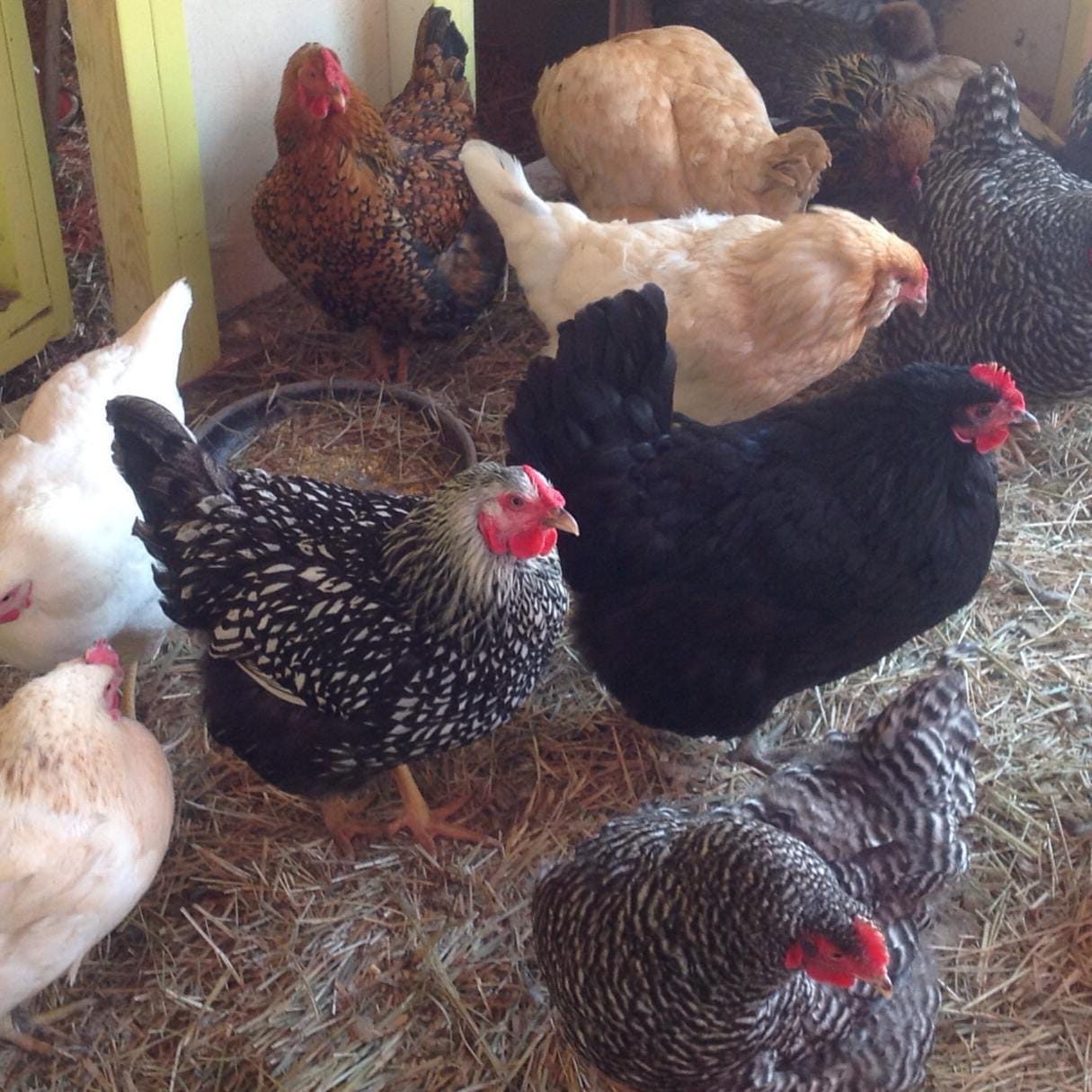Shorty came into my life as a result of being literally hen-pecked, nearly to death. He had spent six months in a dog crate in my mother-in-law's living room after being attacked by another rooster, was released back into the henhouse after he had recovered and the offending rooster had been removed, and was promptly set upon by a group of hens.
The top of his head was nearly gone, one eye was shut and the other one didn't look good. But my mother-in-law was not one to give up.
She asked if I would be willing to give Shorty a home.
At the time, I had a duck who had suffered a broken leg at the hands (OK, feet) of a typically aggressive drake, and she was recuperating in a pen that I had sectioned off from the peacocks and the other ducks. I thought that Shorty could take refuge there, and so l agreed.
Also, I thought that since Shorty was a bantam rooster, he would be better company for the bantam chickens than the standard rooster I already had. I was wrong, of course. He never really fit in anywhere.
Shorty and Unlucky, as I had dubbed the duck, were quite a pair. Although they were both afraid of anything that moved, including me bearing their feed, they seemed to gravitate slowly toward one another.
Within a few weeks, they were sharing the doghouse inside the pen at night, and eating from the same bowl during the day.
As the summer wore on, Unlucky took some tentative steps on her injured leg, dragging it less and less. Shorty's head healed, forming a fashionable flattop. One eye was fixed in a permanent squint, but he seemed to be able to see out of the other reasonably well. He began to add his shrill "cock-a-doodle-doo" in the morning, and grew restless with being cooped up.
I soon learned, however, that he and my other rooster did not get along well at all.
Tooster, my standard rooster, was a most handsome fellow. At first glance he was solid black, but in the sunshine you could see that his feathers were actually a deep, iridescent green, and the sickles, or tail feathers, curled inward at the ends. The bright red of his comb and wattles stood out in stark contrast to his dark body. He also possessed extremely long, sharp spurs.
Shorty, on the other hand, was, well - short. His feathers were a conglomeration of black, buff, and grey, with a golden ring around his hackles. His feet were covered in feathers, as are most banties. And, of course, l've already described his mutilated head, and the crazy eyes.
When I first let them out together, they seemed to size each other up, shuffling in a slow circle, hackles raised.
Suddenly they lowered their heads to the ground, squared off, and hurled themselves at each other. And so I began the ritual of releasing first one and then the other, making sure that one rooster was always penned.
Although Shorty was not the most attractive of my barnyard fowl, he was certainly the most accessible. Thus he was often photographed in a niece's or a nephew's arms, little faces buried in feathers. He was easy to catch and hold, was very light, and seemed to actually enjoy being cradled, especially when it grew cold.
And grow cold it did. Winter came early that year. Shorty seemed to tolerate the freezing temperatures as the other birds do, huddling in the covered part of the pen, vying for the warmth of the lightbulb and each other, running to see what I had when I brought kitchen scraps and feed out to them. But whereas the others roost close together at night, Shorty was unable to fly, and slept by himself in his old doghouse shelter.
And so when the temperatures dropped to zero and below, I brought him indoors. He seemed to enjoy the warmth very much, not to mention his own meals, served in the guest room downstairs in the old dog crate. But he was old for a rooster, at least seven, according to my mother-in-law, and perhaps the cold had been too much for him after all. He ate less and less, and frequently fell over. When it warmed up one day, I took him out to enjoy the sunshine, and he died a few hours later.
"He was just a chicken!" He was indeed just a chicken, but he lived, he gave me joy, he died, and I missed him.
He taught me something. I used to regret the fact that I met my Bill later in life than I would have liked, and I wished that I had been able to give him some of the better years of my youth, when I was freer, firmer, less cynical, more active. I bemoaned the years I felt I’d wasted.
Shorty came into my life at the end of his, and yet he made me happy every day that I cared for him. He was curious, he was dignified, he was strong in his mind. He had an incredible will to live in the face of adversity. He had no idea that he could not beat Tooster's butt.
He was old, but indescribably beautiful in his own way.
I think that we should all be so lucky. Shorty showed me that you can come in late, not accomplish a lot, and still make a lasting impression. He proved that you can fall in love even when the package isn't what it used to be.
I just hope I'm never sent to the guest room downstairs.








